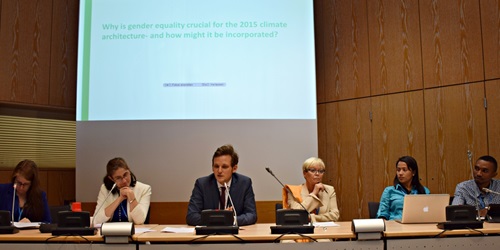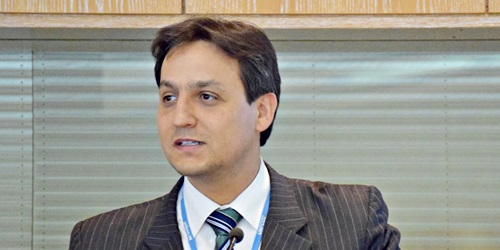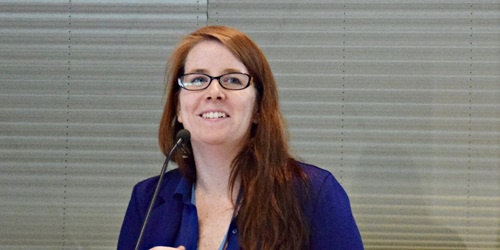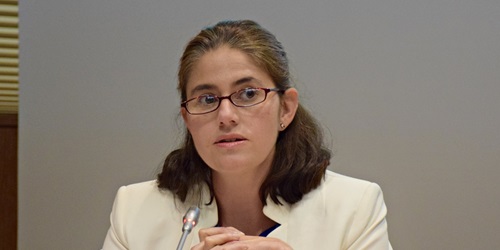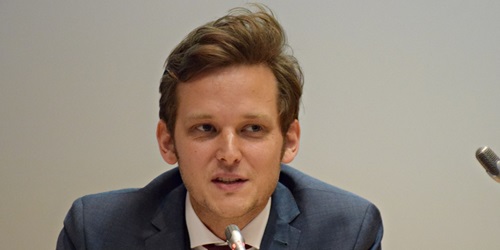NEW YORK (June 24, 2014)— On Friday, June 13th 2014 in Bonn, Germany, WEDO and the Global Gender and Climate Alliance (GGCA), co-hosted a side event entitled ‘Building Blocks Towards a Gender-Responsive New Climate Agreement‘.
The links between gender equality and climate change is supported by undeniable data in terms of differentiated impacts and contributions to action. A gender perspective frames the enabling conditions needed for solutions to be effective as well as the potential of climate impacts to further exacerbate inequalities.
In 2001, Parties to the UNFCCC agreed on the first text on gender equality and women’s participation, adopting two decisions at the seventh Conference of Parties in Marrakesh. Nine years later, in 2010, Parties stated that gender equality and women’s participation are necessary for effective action on all aspects of climate change. Since then, UNFCCC Parties, supported by civil society organizations and UN agencies have included gender equality issues in adopted decisions on nearly every UNFCCC thematic area, including the 2012 Decision 23/CP.18 on gender balance and women’s participation as well as Conclusions on gender-sensitive climate policy at COP19.
Now, as we work towards a 2015 climate agreement, it is crucial to ensure that we have a comprehensive approach to the implementation of current decisions which integrate gender considerations, a roadmap for collecting information and monitoring progress on gender across all decisions, and mandate to ensure a gender-responsive approach to all new decisions coming out of the 2015 climate architecture.
Building Blocks Towards a Gender-Responsive New Climate Agreement explored the landscape of current language on gender and climate change in the UNFCCC, assessed progress/ challenges toward implementation, and proposed key elements to ensure the building blocks and mandate for the 2015 climate agreement are truly gender responsive.
The main building blocks the event highlighted to ensure a truly gender-responsive climate architecture include:
1) A Guiding Mandate
Gender equality should be reflected as a guiding principle and cross-cutting element of the new climate agreement.
2) A Framework for Action
Under the COP agenda item on Gender and Climate Change, in Peru at COP20, adopt a new decision to take forward two key recommendations from the COP19 Conclusions in Warsaw:
- Request the secretariat to organize at least one in-session workshop and/or one expert group meeting every year at the June meeting of Subsidiary Bodies to expand knowledge of the linkages between gender and all significant climate change issues, including, inter alia, adaptation, mitigation, climate finance, technology and loss and damage;
- Establish a Gender Action Platform (GAP) to strengthen the linkages among gender-interested stakeholders, including, but not limited to, all Parties, the Women and Gender Constituency and other relevant gender organizations at all levels, to; 1) Provide opportunities for capacity building of both women and men on issues associated with the development of gender-sensitive climate change policy; 2) Develop provisions to measure success in promoting gender balance and elaborating gender-sensitive climate policy in new and existing accountability and reporting mechanisms under the Convention;
3) Implementation
Monitor and evaluate the effective implementation of decisions which include gender references. As of 2014, a total of 24 decisions on bodies and programmes under the UNFCCC exist. See compilation here with addendum from Warsaw.
4) Finance
- Ensure that the finance mechanism of the UNFCCC acknowledges and supports a gender-responsive approach in its two operating entities, the Green Climate Fund (GCF) and the Global Environment Facility (GEF);
- Ensure significant initial capitalization, by COP20, of the Green Climate Fund, accounted largely by grant inputs, to allow for a gender-sensitive approach to all GCF financing for mitigation and adaptation in line with the mandate in its Governing Instrument;
- Create more direct-access opportunities to UNFCCC climate financing for non-governmental actors, including women and gender groups, among others, for gender-specific projects, through upscaling, improvements and replication of small grant programmes, such as the GEF’s Small Grants Programme (SGP).
5) and More
Additional input from a diverse array of speakers showcased additional key ‘building blocks’ for success:
- Enhance the relationship between the Women and Gender Constituency, other relevant gender organizations, and the UNFCCC Secretariat Gender Focal Point for collaboration on capacity building, knowledge exchange, and monitoring of gender decisions across program areas;
- Create spaces and platforms to highlight existing gender-sensitive approaches, tools and methodologies, such as gender budgets (e.g. recent workshop of the Nairobi Work Programme on gender-sensitive tools and approaches to adaptation should be replicated across other areas of the negotiations);
- Include gender-sensitive methodologies as well as highlight social dimensions of mitigation in the upcoming Technical Expert Meetings (TEMs) under the ADP;
- Ensure mandates for gender, sex-disaggregated data and reporting and information in countries climate change activities;
- Enhance capacity building opportunities to ensure an understanding across the UNFCCC Secretariat, Parties, decision-makers and all stakeholders of gender as a lens of analysis; and to build awareness of each countries national context around the linkages between gender and climate change – both impacts and actions.
Below is a short summary of inputs from each of our speakers:
– Alejandro Rivera Becerra, Head of Delegation for the Government of Mexico
The Delegation of Mexico, on behalf of the Mexican Government, is a leader in promoting gender equality and human rights in the new 2015 climate architecture. Mr. Rivera shared the crucial national mandates on gender equality in Mexico which drive their push for its inclusion in the new agreement as a cross-cutting element.
– Bridget Burns, Advocacy and Communications Director, WEDO, Moderator
Bridget Burns’ presentation focused on what is meant by ‘gender-responsive’ climate policy and why it is important for enhanced action on climate change. Ms. Burns reviewed progress made on incorporating gender into the UNFCCC decisions, explored why gender equality is crucial for the 2015 climate architecture, and shared how it might be incorporated. Download her presentation here.
– Ana Rojas, Gender, Technology and Mitigation Consultant, WEDO
Highlighting the need to include gender-sensitive tools and information in country reporting, Ana Rojas showcased gender mainstreaming experiences taking place in key sectors that can benefit from mitigation actions. These examples are available worldwide and could be shared at the ADP 2 TEMs as a means to further support Parties understanding how gender responsive methodologies could better enhance their efforts for combining mitigation actions while strengthening sustainable development at national level. Ms. Rojas highlighted how regional energy policy centers such as ECREEE (Centre for Renewable Energy and Energy Efficiency in West Africa) and OLADE (Latin American Energy Organization) have gender focal points and are engaged in supporting Governments in the assessment and development of gender sensitive energy policies. The use of gender audits in countries such as Senegal, Ghana and Kenya have been able to identify national priorities for ensuring access to modern energy technologies. Examples of gender responsive projects can be extracted from the CDM PoA (Clean Development Mechanism Program of Activities), where biogas programs taking place in Nepal and Pakistan have utilized gender methodologies to identify locally appropriate manners to involve both women and men in the biogas activities and increase their wellbeing, including the provision of new education and economic opportunities; and from Mali’s HEURA (Household Energy and Universal Rural Access) program, where gender methodologies have been used to ensure women and men can profit from the increased access to energy technologies by facilitating credit and supporting productive activities. Finally, examples drawn from the transport sector where also shared with the audience, to showcase how the use of gender methodologies can support the identification of mobility patterns of women and men, which in turn make the design of public transport routes more efficient, increase the participation of vulnerable groups in non-traditional economic opportunities and even provide more comfortable passenger experiences by reducing sexual harassment or improving facilities for people with mobility constraints.
-Moritz Weigel, UNFCCC Secretariat, Gender Focal Point Team
Emphasizing the UNFCCC Secretariat’s commitment to gender equality, Mr. Weigel shared how further collaboration could continue with strengthened results between the Secretariat and key stakeholders. Mr. Weigel noted the role of the Gender Team, led by the Gender Focal Point, and their increased collaboration between the Gender Team, the Women and Gender Constituency, and other gender focused organizations and networks. He also highlighted opportunities to showcase gender and climate change programmes, best practices, success stories through the Momentum for Change initiative among other platforms. Further, Mr. Weigel brought attention to the recent addition of the UNFCCC COP Gender Day – a day to focus on the importance of gender in achieving climate change solutions – and the Secretariat’s commitment to continue the tradition.
Additional respondents included: Stephanie L. Tan, Representative of the Philippines, who shared her country’s work to ensure a gender-sensitive approach to climate change action as inscribed in their national mandates. Samuel Ogallah of the Pan-African Climate Justice Alliance (PACJA) spoke of the formulation of the first regional African Gender and Climate Change Working Group as well as key next steps in implementing their action plan. Aira Kelala, Finland, and Special Advisor to WEDO/GGCA concluded the session by framing key moments along the road to Lima and Paris as opportunities for all to work together and strengthen inputs on gender in the 2015 climate architecture.
View photos from the event here.


